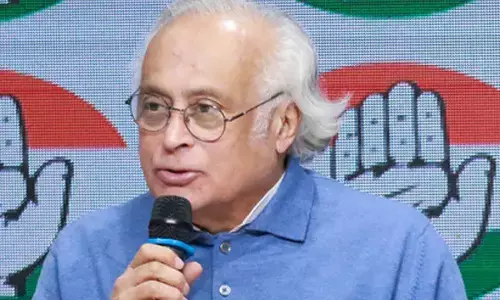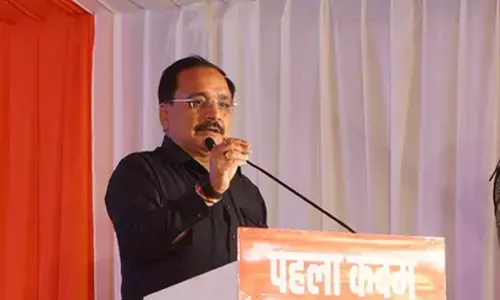National Research Foundation will democratise research excellence in India

Representational image
The government's move to set up the Rs 50,000 crore National Research Foundation (NRF) will deliver the much-needed boost to research by broadening the focus beyond the few government funded higher education institutions, experts said on Sunday.
New Delhi: The government's move to set up the Rs 50,000 crore National Research Foundation (NRF) will deliver the much-needed boost to research by broadening the focus beyond the few government funded higher education institutions, experts said on Sunday.
The Union Cabinet last month approved the introduction of the NRF Bill, 2023, in the Parliament, which will pave the way to establish the body that will seed, grow and promote research and development (R&D) across universities.
According to experts, India's gross expenditure on R&D (GERD) as a percentage of GDP has stagnated at 0.7 per cent for about a decade.
Among the BRICS nations, GERD for India is even lower than Brazil (1.16 per cent) and South Africa (0.83 per cent).
"Only Mexico (0.31 per cent) had a lower share of GERD as a percentage of GDP. India's gross expenditure on research and development (R&D) is one of the lowest in the world, with just $43 per capita, according to NITI Aayog's India Innovation Index 2021," Chocko Valliappa, Vice Chairman, Sona group of Education Institutions, Salem in Tamil Nadu, told IANS.
The NRF, he added, promises to unleash the vast potential of India's youth and uncover pockets of excellence in the higher education institutions in technology, sciences, arts, social sciences.
"The NRF also hopes to correct the imbalance in research funding that the unaided institutions have faced despite showing promising research outcomes," he noted.
The most redeeming feature of the NRF is the inclusion of the private sector as a majority contributor to the NRF funds, estimated to be Rs 36,000 crore over five years.
Prof V Ramgopal Rao, Pillay Chair Professor in the department of electrical engineering and former director of IIT Delhi, wrote in an article in The Times of India that a powerhouse of talent resides in our leading academic institutions and it's time the country utilises it in solving the country's problems.
"NRF can be the vehicle that can put India on the world map as far as deep-technology research and innovation are concerned," he said.
As per data from the National Science Foundation USA, India ranks third in the world for both scientific publications as well as for the number of PhD students.
"While this is good, India's rank of 9th in citations, 6th in patent filings and 40th for innovation are a matter of concern. In terms of the percentage of GDP, India’s spending on research and development is among the lowest in the world," Prof Rao wrote.
Thus, the decision to set up a Rs 50,000 crore NRF gives wings to the government’s trust and confidence in the power of research to solve the problems of humanity.
"In fact, it broadens the scope well beyond science and technology to social sciences, arts and humanities," said Valliappa.
The NRF will be funded by both the private sector and the government is groundbreaking as both stakeholders will have a skin in the game with the private sector bringing in Rs 36,000 crore and the government contributing Rs 14,000 crore, the experts noted.








